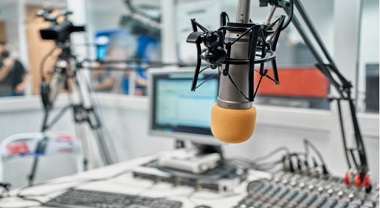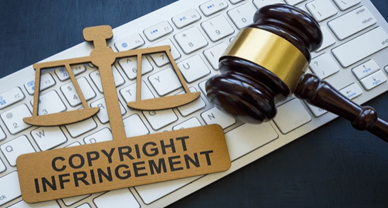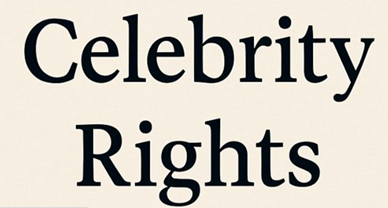Entertainment Network (ENIL) Ltd. Vs PPL India Ltd. & Ors
Premise
Entertainment Network India Ltd. v. Phonographic Performance Limited India & Ors is a case that primarily revolves around seeking revision of statutory license rates as per section 31 D of the Copyright Act, 1957 (r/w Rule 31(9) of the Copyright Rules, 2013). The license rates pertain to the broadcasting of sound recordings which are owned and controlled by the respondents (Phonographic Performance Limited India) through the petitioner’s (Entertainment Network India) radio stations. In the instant case, all the petitioners are radio broadcasters. Whereas, on the other hand, the respondents and impleaders are music recording labels, copyright societies (comprising of members who are music composers, lyricists, and creators of musical or literary works that are embedded in sound recordings).
[Image Source: gettyimages]
Brief facts
In a broad sense, a license fee refers to an amount that is paid in order to obtain the rights to use a protected property or asset. In the instant case, the license fee rates that are payable by the petitioners for exercising their rights as per section 31 D were prescribed by the Intellectual Property Appellate Board (IPAB). The fixed license rates were applicable from the 1st of October 2020. For the same, a common order was issued on the 31st of December 2020. Currently, the petitioners are bound to pay for the sound recordings that are used as per the license rates fixed through the IPAB order. The fixed license fee as well as the IPAB order are due to expire on the 30th of September 2021. However, due to the promulgation of the Tribunals Reforms (Rationalization and Conditions of Service) Ordinance, 2021 (which was subsequently replaced by the Tribunal Reforms Act, 2021), the IPAB was abolished from the 4th of April 2021. Following the IPAB’s abolishment, its powers and functions were transferred to judicial functionaries. Consequently, the jurisdiction to revise or fix the license rates was transferred to the Commercial Division of the Delhi High Court. Considering the aforementioned circumstances, the petitioners have sought revision and fixation of license rates that are payable by the respondents, due to the expiry of rates that were fixed through the IPAB order dated 31st December 2020. Essentially, the petitioners seek to continue with the rates that have been fixed by the IPAB with respect to the usage of the sound recordings.
Contentions put forth by the petitioner
The petitioner first contended that they are inherently entitled to a license to broadcast sound recordings, which roots from the rights conferred as per section 31 D of the Copyrights Act. Due to the fact that the rates determined by the IPAB are set to expire on the 30th of September 2021, the petitioners are fully entitled to seek a revision or continuation of the previously fixed license fee rates. It is pertinent to note that, the IPAB, without jurisdiction, imposed liability upon the radio broadcasters to seek a license for the underlying works as well. Moreover, the IPAB added that the fixed rates were not composite in nature. However, following the 2012 amendment of the Copyright Act, it was noted that the petitioners need not pay any fee for the underlying works at least until the Division Bench decides if the law has significantly changed after the 2012 amendment. However, earlier in the case of Indian Performing Right Society Ltd v. Entertainment Network India Ltd., the Delhi High Court held that the position of the law is unaffected by the 2012 amendment.
It was also contended by the petitioners that section 31 D has empowered the IPAB to fix license rates after conducting inquiries. In conclusion, it was argued that in any event of a conflict, the High Court’s jurisdiction is taken into consideration over the powers of a statutory tribunal. In conclusion, while the IPAB can only merely fix the license rates, the ultimate power to resolve conflicts pertaining to the rates vests upon the judicial court.
Secondly, the petitioners contended that irreparable injury will be caused if relief is denied. Essentially, it was argued that while the petitioner’s entitlement to license is not denied by the respondents, the final determination of the petitions put forth before the Delhi High Court would impact the rate of the license fee. Furthermore, the petitioners argued that due to the ongoing COVID 19 pandemic and its severe impact on financial conditions of the petitioner’s subsidiaries, “irreparable injury or harm” may be caused to the petitioner if interim relief is not granted. This is primarily due to the fact that in the absence of interim protection, the petitioner would be bound to pay the exorbitant license fee fixed by the respondents. The payment of such an exorbitant license fee may eventually result in the collapse of the petitioner’s businesses. Lastly, it was argued by the petitioners that future works should also be taken into consideration as per section 31 D of the Act, once the work in question is published in the future.
Contentions put forth by the respondents
Firstly, it was argued by the respondents that there was a deliberate delay by the petitioner with respect to the IPAB order and its subsequent expiry date. It was argued that the petitioners were aware of the rates that were fixed by the IPAB. Moreover, the petitioners were fully aware that the rates fixed as per the IPAB order were bound to expire on the 30th of September 2021. According to processes mentioned under Rule 31, the petitioner was required to file petitions two or three months in advance. Thus, the respondents contended that the petitioner’s actions were a “deliberate ploy to falsely engineer emergent circumstances which require this Court to go beyond the scope of its powers to impose interim rates”. Thus, the petitioners were bound to file their petitions before the Court in April 2021 when the IPAB was initially abolished. However, there was a deliberate delay by the petitioners in the same.
Secondly, it was argued that the applications put forth by the petitioners were a “dishonest” attempt to overreach the Division Bench. Moreover, it was contended that the petitioners cannot secure an interim order which may lead to the modification of the already issued IPAB order. It was noted by the respondents that as per Rule 31(9), rates of royalties are periodically revised at least once (an increase of 6-10%) a year due to inflation and market growth. Therefore, the rates that have already been fixed by the IPAB order have to be inevitably increased. Considering the fact that the radio industry continues to be profitable despite the ongoing pandemic, the petitioners are capable and are bound to pay royalties. Lastly, the respondents argued that the IPAB order is not severable. Thus, if it has to be extended, it must be in its entirety.
Held
The Court noted that regardless of the interim orders, the new rates that are affixed by the courts shall be made effective from the 1st of October 2021. Moreover, the Court noted that the fixation of interim rates would not be equivalent to a grant of an interim license. Hence, prices fixed as per the IPAB order shall continue to be in force until the Court takes further action with respect to the proceedings of the petitions. Thus, the Court adjudicated that the status quo with respect to the payment of royalty (prices affixed through the IPAB order dated 31st December) shall be maintained with effect from 1st October 2021.
Author: Sanjana, a BBA LLB student of Symbiosis Law School (Hyderabad), in case of any queries please contact/write back to IP And Legal Filings at support@ipandlegalfilings.com.




